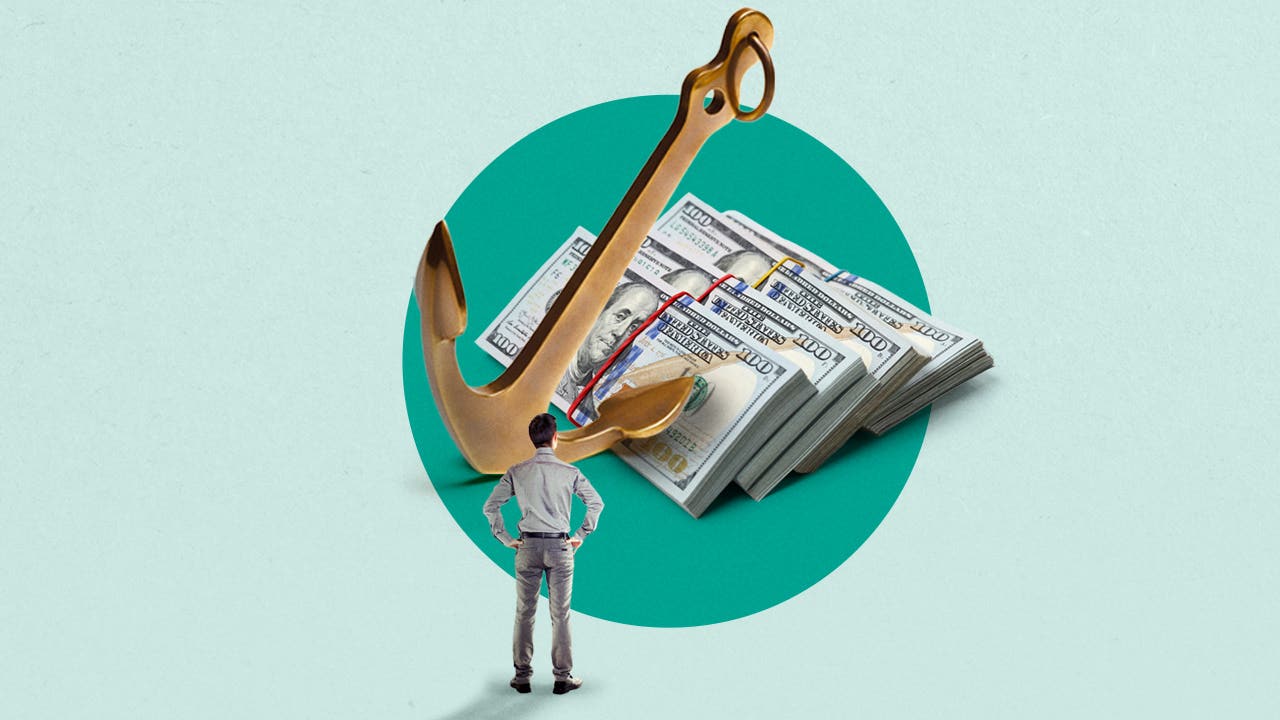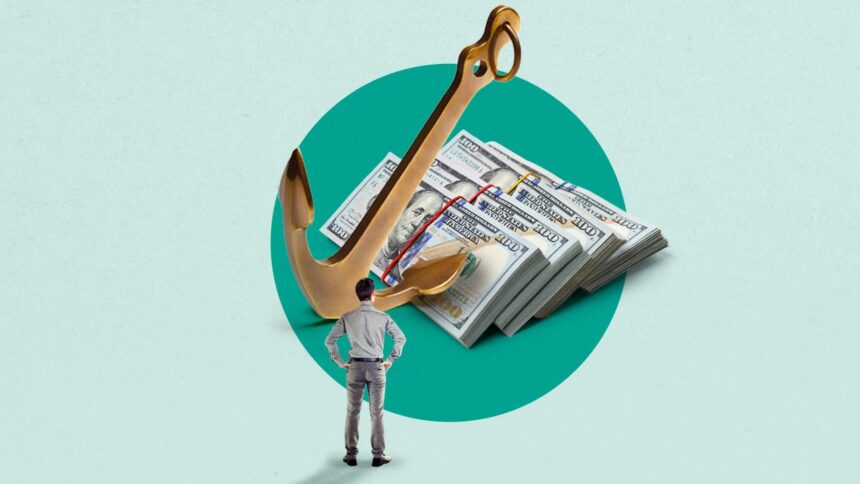
Images by Getty Images. Illustrations by Issia Davis/Bankrate
Key takeout
-
Money Market Account combines the functionality of a savings account and a checking account to provide competitive interest rates that are more flexible than traditional savings accounts.
-
These accounts are federally insured up to $250,000 per depositor and provide access through checks, debit cards and electronic transfers.
-
Money Market accounts are suitable for short-term savings goals such as emergency funds and short-term cost savings.
-
Interest rates, fees and minimum balance requirements vary from agency to institution, so comparing options will help you find the best account for your needs.
Money Market Accounts are a savings tool that has competitive interest rates and is more flexible than traditional savings accounts. Money market accounts usually provide additional access to funds through checks, debit cards and electronic withdrawals, making it easier to manage your money when needed.
These accounts are federally insured by the bank’s Federal Deposit Insurance Corporation (FDIC) or credit union’s National Credit Union Agency (NCUA), providing both security and growth potential. However, there may be higher withdrawal limits and minimum balance requirements compared to regular savings accounts.
How does a Money Market account work?
Money market accounts usually generate interest in balances calculated daily and paid monthly. Banks and credit unions often quote your rate as an annual percentage yield (APY). This allows you to measure potential revenue and make it easier to compare different accounts.
Interest Rate Mechanic: Money Market accounts offer a variety of fees. This means that changes in market rates can lead to higher or lower revenues. For example, if the Federal Reserve adjusts its target interest rate, APY could follow suit. This volatility means that returns are not guaranteed, like certificates of deposits.
Access and Transactions: While money can usually be accessed via checks, debit cards, or electronic transfers, federal guidelines or banking policies may limit withdrawals. Some accounts require a higher minimum balance to avoid fees and to get the highest fees.
Safety and Insurance: Unlike Money Market Fund, an investment product, Money Market accounts are deposit accounts protected by federal insurance up to $250,000 per depositor at each institution.
Pros and cons of money market accounts
Strong Points
- Competitive Interest Rates: Currently, the best money market accounts pay around 4-5% APY, helping your money grow faster than traditional savings accounts and could surpass inflation.
- Federal Insurance Protection: If your account is in a FDIC member bank or NCUA member credit union, your deposit is insured up to $250,000 per account holder.
- Flexible access: Unlike CDS, you can access funds via checks, debit cards and electronic transfers, if necessary, without an early withdrawal penalty.
Cons
- Highest minimum balance requirement: Money market accounts often require larger deposits than traditional savings accounts to open an account or win top APYs.
- Potential withdrawal restrictions: Federal restrictions have been eased, but many banks still impose transaction restrictions and could result in fees if they exceed them.
- Variation rate: Your interest rates can change over time, and revenues can decrease as market rates decrease.
How to Choose the Best Money Market Account
Finding the right money market account involves assessing several important factors beyond just interest rates.
- APY comparison: To maximize your revenue, find the account that offers the best Money Market Account APY. Online banks often offer higher APY than traditional brick and mortar stores.
- Minimum Balance Requirements: Please check if your account balance requirements are consistent with your financial situation. Some accounts require more than $1,000 to avoid fees or earn advertised yield.
- Price structure: Check for potential fees including monthly maintenance fees, excessive withdrawal fees, transfer fees, or penalties for early closure. Find an account that exempts fees with reasonable balance requirements.
- Access function: Consider how you can access your funds. Some accounts offer checks and debit cards, while others may limit withdrawal options. Check the number of allowed permissions per statement cycle.
- Digital banking features: We evaluate the capabilities of banks’ online banking platforms and mobile apps. This includes features like mobile check deposit, real-time balance updates, and account alerts.
Compare today’s Money Market Account offers
Achieve your savings goals with money market accounts that offer high yields and check writing privileges.
Compare rates
What is the difference between a Money Market account and another account?
| Features | Money Market Account | Savings account | Checking account | Deposit certificate |
|---|---|---|---|---|
| Average APY (as of June 2025) | 0.45% | 0.60% | 0.08% | 1.7%-2.01% |
| access | Check, debit card, transfer | Transfer, ATM | Unlimited transactions | No until maturity |
| Transaction Limitations | In most cases only (June/Mon) | In most cases only (June/Mon) | Unlimited | Nothing is allowed |
| Minimum balance | Often high (over $1,000) | Often low ($0-$100) | Often low ($0-$100) | Varies ($500+) |
| It’s perfect for | Emergency funding, short-term goals | Long term savings | Daily trading | Regular savings |
| FDIC Insurance | Yes, up to $250,000 | Yes, up to $250,000 | Yes, up to $250,000 | Yes, up to $250,000 |
Money Market and Checking Accounts: Money market accounts usually offer much higher interest rates than checking accounts, but are not designed for unlimited daily trading. They are ideal for occasional access while gaining interest.
Money Market vs. Savings Account: Both are designed to pay interest and save money, but money market accounts often offer checks and debit cards to make access easier. However, you usually need a higher minimum balance.
Money Market vs CDS: A certificate of deposit allows you to pay a higher fee, but you will close the money on certain terms. Money Market Accounts provide more liquidity to your short-term needs and goals.
Money Market Accounts and Money Market Mutual Funds
Money Market Accounts and Money Market Funds have similar names, but are very different. Most notably, money market funds are considered investments as they are a type of mutual fund. They are not covered by FDIC insurance and could lose their principal. Below is a breakdown of their main differences:
| Money Market Account | Money Market Fund |
|---|---|
| Bank Deposit Account | Investment/Company Trust |
| FDIC/NCUA insured up to $250,000 | There is no federal insurance |
| Main Guarantee | Principals can be fluctuated |
| Low, stable return | Potentially high returns |
| Easy access via check/debit card | You will be accessed within 1 business day |
| Suitable for emergency funds | Better for cash on parking investments |
Important distinctions: A Money Market Account is a safe, insured deposit account that is perfect for emergency funds and short-term savings. Money market funds are investments that can lose value and are not suitable for money that you can’t afford to lose.
Money Market Account FAQ
Conclusion
Money Market Accounts offer a great balance of safety, growth potential and accessibility for your short-term savings goals. They are especially valuable for emergency funds that require federal insurance security and flexibility to access funds when unexpected costs arise.


